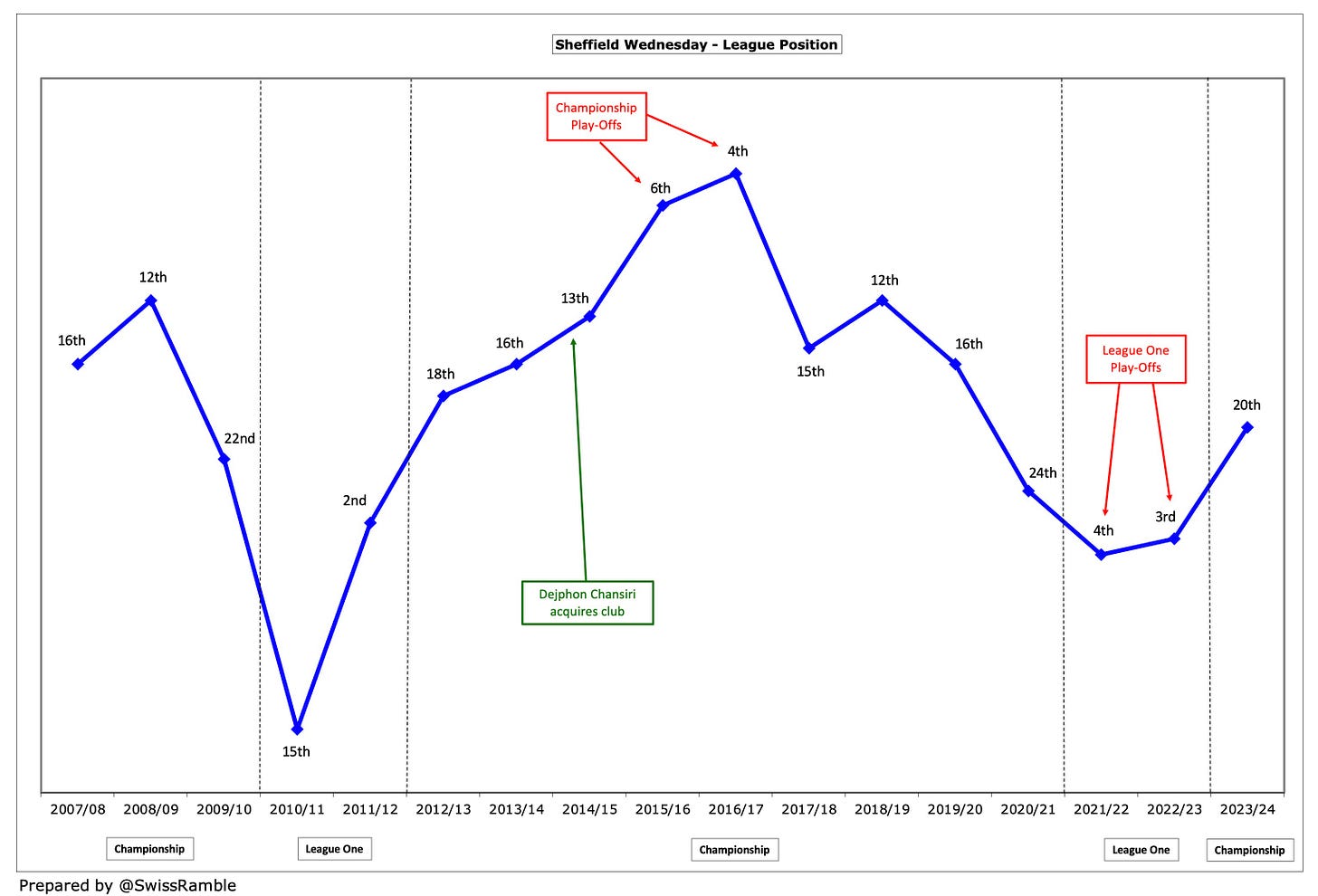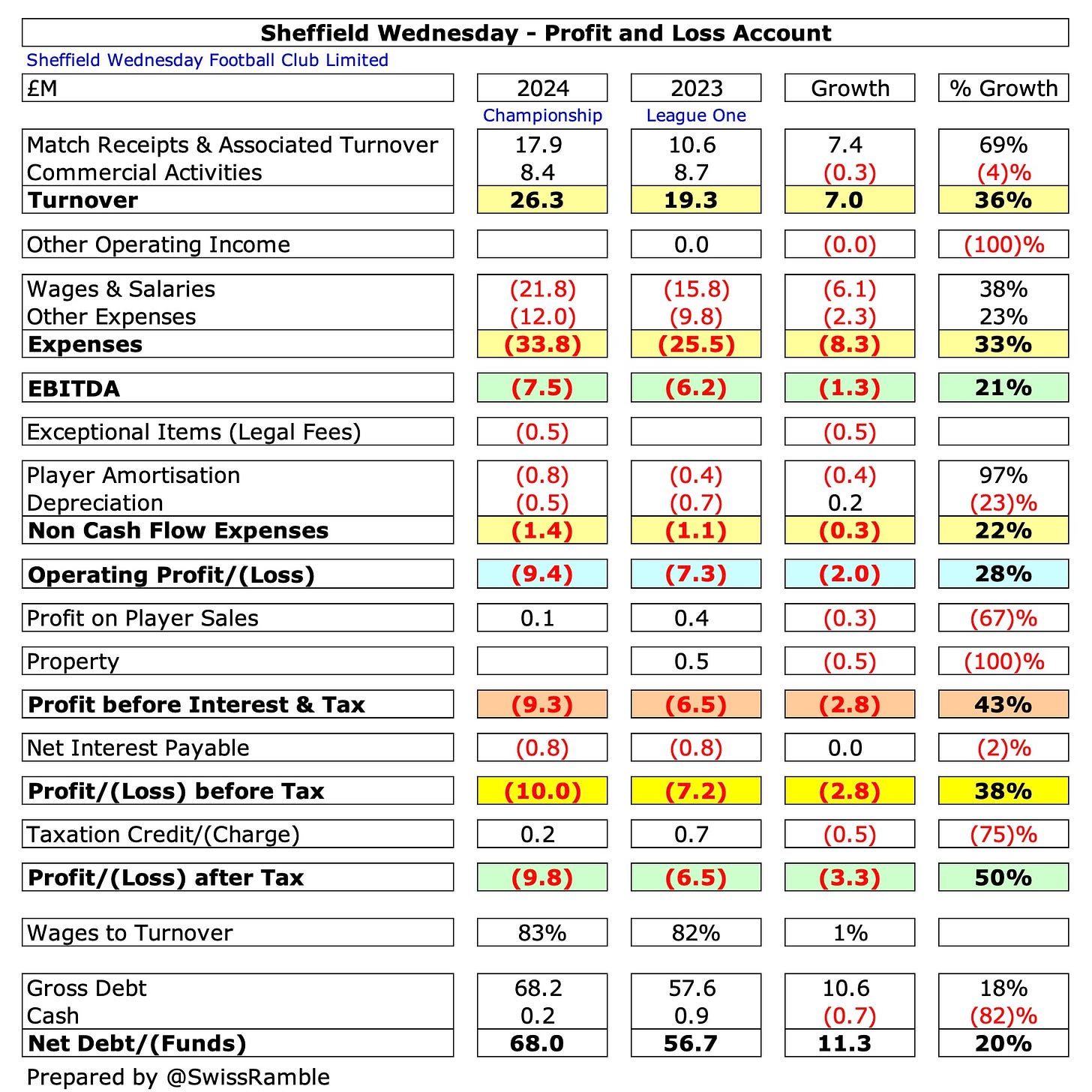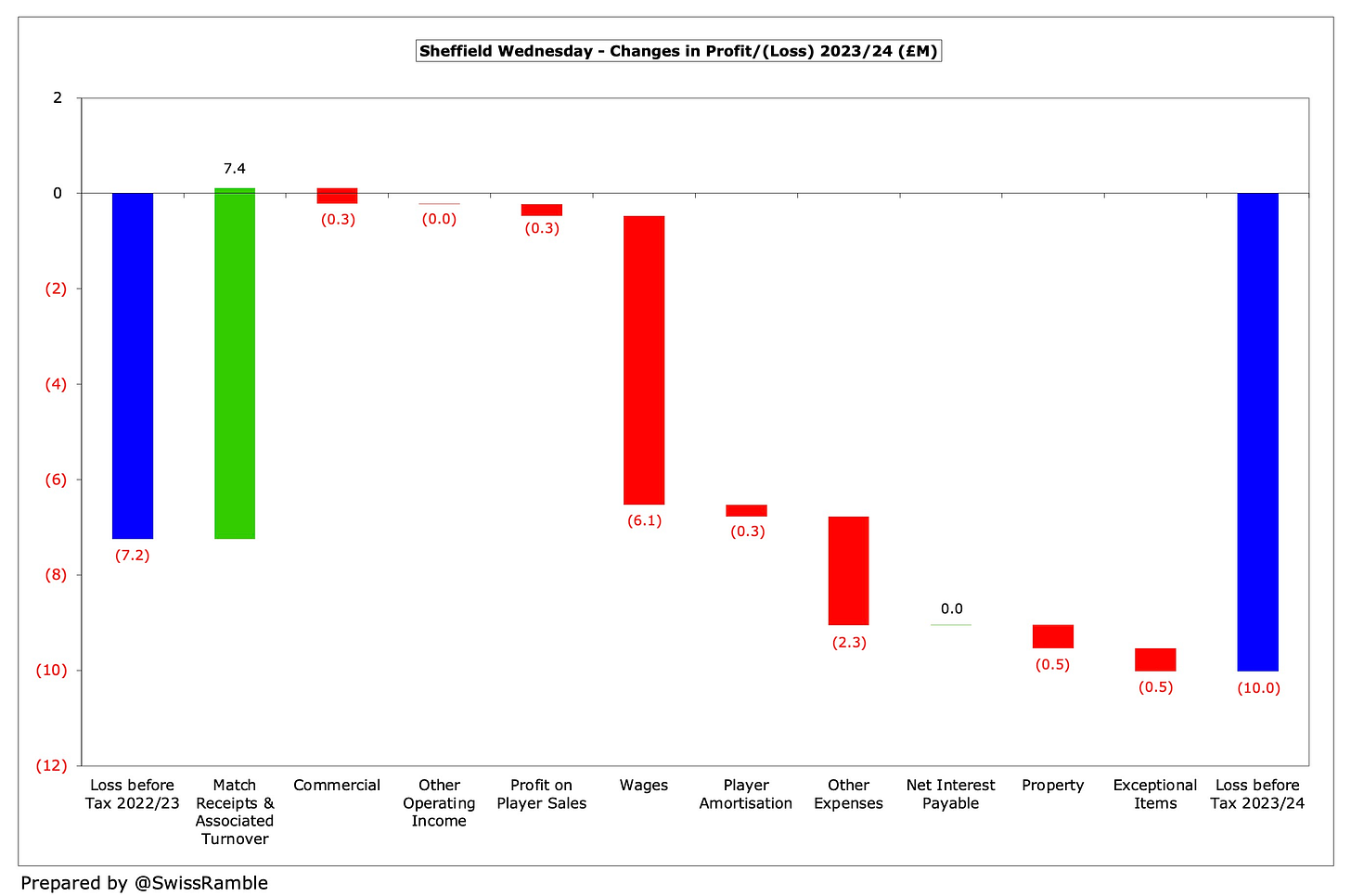
Sheffield Wednesday Finances 2023/24
We have an earlier than usual look at Sheffield Wednesday’s finances because they released their 2023–24 accounts
significantly earlier than prior seasons—in fact, only a few days after Christmas.
Following two seasons in League One, Wednesday was promoted through the play-offs and scored the game-winning
goal in the final minute of extra time to begin their first season back in the Championship.
They narrowly managed to survive on the final day of the season, finishing in 20th position, and almost immediately
suffered a return to England’s third division. Danny Röhl, whose arrival in October 2023 resulted in a significant
improvement in the club’s fortunes, was largely responsible for the “great escape.”
Remarkably, Röhl was the third manager following Wednesday’s elevation. In June 2023, a few weeks after the
Wembley victory, Darren Moore departed the team “by mutual consent.” After that, Xisco, a former Watford
manager, took over for the big guy, although the Spaniard was only in charge for three months.
Under the young German coach, who was understandably proud of the team’s ability to avoid relegation, the team’s
performances significantly improved: “We wrote history.” No team has ever stayed in the league after taking just six
points from their opening 17 games.”
The Owner
Even with this accomplishment, there is currently “trouble at t’mill” since it appears that the relationship between
the club’s owner, Dejphon Chansiri, and the supporters has irretrievably deteriorated.
“I am the one who needs to pay around £2 million on average every month,” the Thai millionaire said last year. Some
supporters should respect club owners more and stop being so self-centred and just considering their personal
interests without contributing to the club’s success.
Not surprisingly, there have been numerous demonstrations against the ownership, such as the “Dejphon Chansiri”
banner at Hillsborough. Not appropriate or suitable. Sell the team.
It’s safe to say that after club officials, including Chansiri, engaged in a number of contentious interactions with
supporters during a recent fans’ forum, things did not get any better.
After demonstrations against the owner, Chansiri did, in fact, declare last season that he would not be investing any
more money in the team, stating, “This is not acceptable and as a result I am not willing to inject more money while I
am being treated unfairly by those fans.”
Although there hasn’t been much recent investment in the team, he did ultimately write another cheque to make up
for the club’s losses. In fact, Röhl expressed dissatisfaction in December about the lack of communication with the
owner on possible targets during the current window.
The club’s response was fairly puerile, “If the manager requires reinforcements during the January transfer window,
the onus is on him to source and provide a list of targets to present to the chairman, as has always been the case.”
League Position
Since Wednesday has made it to the Championship play-offs twice under Chansiri’s leadership, albeit quite some
time ago in 2015–16 and 2016–17, it is fair to say that he came very close to bringing the team back to the Premier
League.
He made significant investments in the team during this time, but the risk ultimately backfired, and the team
struggled to meet the EFL’s Profitability and Sustainability Rules.
Wednesday has suffered since those early days, dropping gradually down the Championship table before being
demoted to England’s third division in 2020–21. Two seasons later, they bounced back.

So let’s take a look at Wednesday’s financial position in the Championship to see how they stack up against their
rivals and whether they can realistically compete in England’s second tier.
Profit/(Loss) 2023/24
Despite revenue rising £7.0m (36%) from £19.3m to a club record £26.3m with promotion from League One to the
Championship, Wednesday’s pre-tax loss increased from £7.2m to £10.0m in 2023–2024.
In order to compete in the higher division, the club’s running expenses increased by £8.5 million (32%) from £26.7
million to £35.2 million. Additionally, the club paid £0.5 million in unusual legal fees.
The £0.5 million gain from a property sale from the previous season did not recur, and the profit from player sales
dropped from £0.4 million to just £0.1 million.
Because to a £0.2 million tax credit, the loss after taxes was somewhat lower at £9.8 million.

The revenue increase was driven by match receipts & associated turnover, which rose £7.3m (69%) from £10.6m to
£17.9m, mainly due to the higher TV money in the Championship, but commercial activities fell £0.3m (4%) from
£8.7m to £8.4m.


Leave a Reply